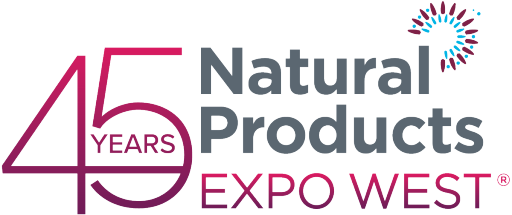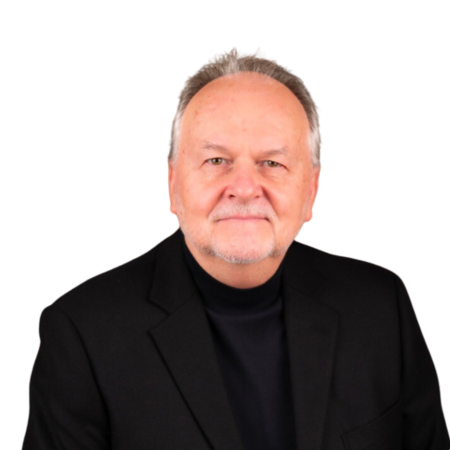Welcome to Radicle Science’s new feature, Trailblazer Tuesday!
Each month, we embark on a journey to explore and celebrate the innovators, pioneers, and visionaries shaping the landscape of our dynamic industry. With each interview, we shine a spotlight on an industry leader whose groundbreaking contributions, insightful leadership, and relentless pursuit of excellence have left their indelible mark. We feature individuals whose stories resonate with ambition, resilience, and a commitment to innovating our industry. We feature Radicle Raw moments of the interview that highlight the trials and tribulations that drew them to the industry or personal mantras that serve as a drumbeat that consistently calls them. Join us as we discover the pivotal moments that propelled these trailblazers to the forefront.
Please “meet” our first featured Trailblazer, Loren Israelsen.
What are the most common misconceptions people have about our industry, and how would you debunk them?
The one great myth that has led to THE great misconception about our industry is the myth of the unregulated dietary supplement industry. That is flat out untrue. Dietary supplements are regulated. So why does this fiction persist? Simply put, DSHEA was a stunning defeat for critics of both supplements and of our industry. In defeat, they took a low road to try and undermine the will of the public and an act of Congress to delegitimize the Dietary Supplement Health and Education Act (DSHEA). Many of these original critics who we battled during DSHEA have continued to write and speak that supplements are unregulated. The solution? Every member of our industry should understand why critics say this and be able to set the record straight.
Can you share a memorable “aha” moment from your career that changed the way you approach work?
At age 27, I was diagnosed with a stage 3 malignant melanoma. At that time, there were no treatments, and melanoma was (and remains) a fearsome type of cancer. I was working at Nature’s Way at that time and suddenly the company library became my second home, as I read everything I could, wondering if the wisdom of natural remedies might come into play. I learned what millions have experienced — a sudden and terrifying health event, few answers within conventional medicine, and the beginning of a journey as a medical refugee looking for answers, which often lead them to us as an industry. That “aha” moment seared into my mind a sense of compassion and responsibility to the consumers we serve, as many today are on that journey. So, how dare we not do our best to provide the highest quality products and best services possible to help them on the path back to health? Many of our legacy companies and greatest leaders come from this journey seeking for health. That is how Nature’s Way started — my own employer at that time.

If you could give one piece of advice to your younger self when you started in this industry, what would it be?
Learn to say no. This industry has afforded me such interesting and challenging opportunities that I have wanted to be a part of everything. In trying to do too much, I also placed too much pressure on myself and everyone around me — staff and family in particular. Luckily, I have a marvelous staff who try to balance my “Oh, I can do that” with a firm, but gentle reminder of the consequences of over-yes’ing. I keep a small card on my desk with a quote from Lin Yutang, a Chinese writer and educator, that goes like this: “Besides the noble art of getting things done, there is a nobler art of leaving things undone…The wisdom of life consists in the elimination of non-essentials.” This is so true and so powerful, if we embrace this philosophy. Not everything can or should be done. Be selective and excel at whatever you choose to do. I think this is also called a balanced life.
Describe a project or initiative you are currently working on that you are particularly passionate about. What makes it stand out?
The Q-Suite Initiative (QSI). This has become a passion for me. Here’s why. As the industry grows, many of our companies are being acquired by venture capital and multi-national CPGs. These acquisitions are accompanied by a lot of changes in the C-suite. Experts at managing the top and bottom line are brought in to meet the investors’ expectations. Rarely do these C-suite executives have any background or training in the quality, analytical, and regulatory functions. This has created a widening gap of communication, understanding, and support from the C-suite to what I now call the Q-suite (quality, analytical, regulatory). Creating the Q-suite meme creates an identity and a clear set of needs which are being underserved by the C-suite in too many cases.
Finally, if this industry adopts the concept of the Q-suite, a lot of good things could happen to support the Q-suite function and deepen our commitment to quality. This will be a key measure of how our consumers can trust our products and services. Stay tuned. There is much more to come about the QSI in the near future.
In your opinion, what emerging technology or trend will have the most significant impact on our industry in the next 3-5 years?
To me, there are two: artificial intelligence and digital currencies. At the moment, AI seems to be affecting our industry in two areas: innovation/discovery and jobs. There is good reason to be enthusiastic about the role of AI in massively speeding up discovery and creating and eliminating interesting possibilities using massive data sets from which skilled people can then advance ideas. The second effect now happening is AI replacing jobs. Here there are two areas that seem to be affected: regulatory and legal. I am aware of no less than five people in legal and regulatory positions in our industry who have been replaced by algorithms. This, I have a problem with. Both functions require judgment and experience that algorithms simply can’t account for.
Finally, and the one I feel most strongly about, is digital currency. This one is simple for me. Central bank digital currencies (CBDC) are being heavily promoted by governments and financial institutions as the next great thing. Why? They are incredibly efficient for both government and financial institutions to use, but they also erase virtually all financial privacy and have already been used as a means of control to freeze bank accounts, should one’s opinions or actions disagree with or offend government authority. Now consider us, the natural products industry. We already know that alternative health information is being throttled down or censored by most major electronic information sources. Imagine adding the threat of a frozen bank account if our opinions are in opposition to a government policy, regulation, or point of view. This is one issue we all need to understand and be ready to take a position on before we can’t.
After 43 years of service in this industry, one thing I have learned is that freedom is not free, and health freedom is especially expensive and must be defended, day in and day out. I salute all those who came before us who have done that, and I urge all friends and colleagues in this industry that we love to stand ready to defend our views, our health freedoms and rights of expression. That will be our true legacy.


